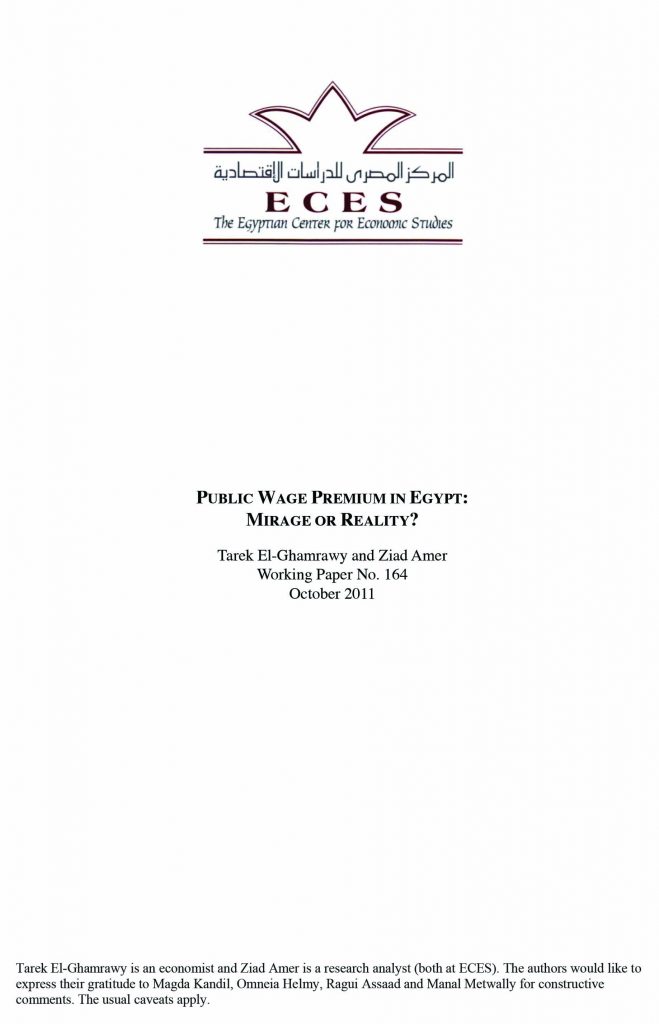Abstract:
Contrary to economic intuition, public sector wages appear in the data to be higher on average than private sector wages. This paper investigates the validity and reasons behind this finding through an analysis of the ELMPS 2006 dataset. More importantly, the paper attempts to identify wage determinants in the public and the private sectors in the framework of the human capital theory. This helps to point out whether wages in any of the sectors are determined by productivity as measured by human capital variables, namely, education, skills and experience. The main findings are that workers’ characteristics in both sectors differ significantly, including formality of employment, levels of education, nature of occupations and economic activities. When all characteristics are taken into account, the public wage premium statistically disappears. Wage regressions show that private sector wages are more efficient, in the sense that they are based on education, skills and experience, while public sector wages are primarily based on experience in addition to several institutional factors. Besides, formality of employment, which is more prevalent in the public sector, plays an important role in raising wages. The paper concludes with several policy implications.

